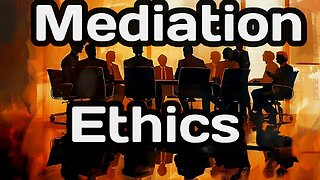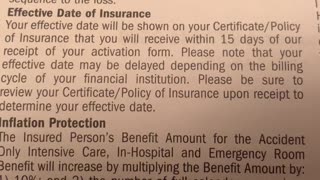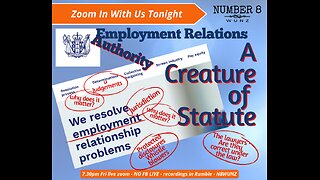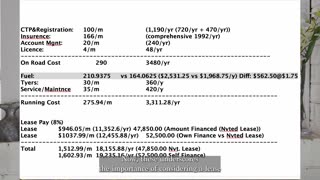Insureds Must Negotiate Terms of Coverage Before Inception
Litigation is an Improper Method to Negotiate Insurance Coverage
Post 4800
Plaintiffs' attempted to secure insurance coverage for an action currently pending in federal court (the "Underlying Litigation"). Plaintiffs looked to two towers of D&O insurance to provide that coverage, naming a dozen individual insurers in the process. The problems faced by the insurers were:
A provision in the earlier tower of insurance, dubbed the "No Action" clause, commands that no actions may be filed against the insurer until the insured's payment obligations are finally determined.
Plaintiffs attempted to convince the Court that the need to enable swift litigation against insurers outweighed the need to enforce contracts as written.
The prior acts exclusions found in the latter tower's policies.
The Underlying Litigation centers on alleged wrongs that occurred too early to be eligible for coverage under the latter tower.
In Origis USA LLC and Guy Vanderhaegen v. Great American Insurance Company, et al, C. A. No. N23C-07-102 SKR CCLD, Superior Court of Delaware (May 9, 2024) explained the way Delaware interprets insurance contracts.
FACTUAL BACKGROUND
The insurers are two towers of multiple insurers who are named as defendants.
The Underlying Litigation
The Underlying Litigation are only tangentially relevant to this coverage dispute. It was brought by Pentacon BV and Baltisse NV (together, the "Investors") to recover sums that Plaintiffs and Plaintiffs' affiliates-who are not insured under the two towers at issue here-allegedly stole through fraud. The heart of the allegations are that Plaintiffs and their affiliates undersold the Investors on the value of the Investors' shares in Origis and Origis's parent company, Origis Energy NV.
Plaintiffs and their affiliates bought out the Investors' interest in Origis and Origis Energy for $105 million. Just a few months later, Plaintiffs sold Origis to a third party for $1.4 billion. The investors complain that they did not get their fair share of that payday.
The 2021-22 Tower
As relevant here, Great American's policy, which was followed by the other 2021-22 Insurers' policies, states: “With respect to any Liability Coverage Part, no action shall be taken against the Insurer unless, as a condition precedent thereto, there has been full compliance with all the terms of this Policy, and until the Insured's obligation to pay has been finally determined by an adjudication against the Insured or by written agreement of the Insured, claimant and the Insurer.”
The 2023-24 Tower
The second relevant tower of D&O insurance (the "2023-24 Tower") had a policy period of February 4, 2023 to February 4, 2024. In this timeframe, Bridgeway issued the primary policy, and several other insurers (together, the "2023-24 Excess Insurers" and, together with Bridgeway, the "2023-24 Insurers") each issued excess policies in that ascending order. After the applicable retention, each of the 2023-24 Insurers had a $2.5 million limit.
Each of the 2023-24 Tower's policies had a provision excluding coverage for claims arising out of wrongful acts that first occurred before November 18, 2021. RSUI's first-layer excess policy reflects a fairly representative example, stating: “The Insurer shall not be liable to make any payment for Loss in connection with any Claim made against any Insured that alleges, arises out of, is based upon or attributable to, directly or indirectly, in whole or in part, any actual or alleged Wrongful Acts which first occurred prior to November 18, 2021.”
DISCUSSION
Delaware courts review insurance contracts to assess the parties' intent "as expressed through their contractual language." Like any contract, when an insurance contract's terms are reasonably susceptible of but one meaning, and are thus unambiguous, Delaware courts will apply that meaning.
The No Action Clause Precludes This Litigation Against the 2021-22 Tower and Plaintiffs Cannot use this Litigation to Reopen Negotiations.
Great American, joined by Markel, argued that the plain language of the No Action clause blocks Plaintiffs' ability to bring this coverage dispute before the Underlying Litigation concludes.
Delaware courts are exceptionally inclined to hold sophisticated parties to their bargains. For that reason, the Court refused to disregard the No Action clause.
The Court was fully confident that the representatives of this billion dollar company were well-equipped to understand the policy language and negotiate necessary changes.
The Court enforced the No Action clause as it is written. That prohibition will be lifted when Plaintiffs satisfy the two conditions contained in the No Action clause. Until then, the 2021-2022 Insurers' motions to dismiss must be granted.
The Prior Acts Exclusion Precludes Coverage under the 2023-24 Tower.
The analysis is even clearer with respect to the unavailability of coverage for the Underlying Litigation under the 2023-24 Tower. Even if the Court were to accept that Plaintiffs met their burden to establish coverage, the 2023-24 Insurers successfully refute that coverage with the prior acts exclusion.
The 2023-24 Insurers' motions to dismiss must be granted.
CONCLUSION
Plaintiffs' policies do not support Plaintiffs' current suit. In one set of policies, Plaintiffs agreed not to sue their insurers until the occurrence of a particular event that is yet to occur. In the other set of policies, Plaintiffs waived coverage for pre-existing wrongs such as the Underlying Litigation. Accordingly, the motions to dismiss must be GRANTED.
ZALMA OPINION
Insurance contracts with multiple towers of insurance coverage with multiple insurers taking on the risk of loss in excess of the underlying insurance coverages where, in this case the layers contained multiple insurance policies waiting for each lawyer to pay out its limit before the next in the tower has to pay. Here, the contract language limited the coverages in ways that upset the insureds who tried to rewrite the policies to provide coverage they did not buy. The court refused to change the conditions of the policy.
(c) 2024 Barry Zalma & ClaimSchool, Inc.
Please tell your friends and colleagues about this blog and the videos and let them subscribe to the blog and the videos.
Subscribe to my substack at https://barryzalma.substack.com/subscribe
Go to X @bzalma; Go to Newsbreak.com https://www.newsbreak.com/@c/1653419?s=01; Go to Barry Zalma videos at Rumble.com at https://rumble.com/c/c-262921; Go to Barry Zalma on YouTube- https://www.youtube.com/channel/UCysiZklEtxZsSF9DfC0Expg.
Go to the Insurance Claims Library – https://lnkd.in/gwEYk.
-
 9:03
9:03
zalma
22 days agoBlank Space on Contingency Fee Agreement Makes it Unenforceable
15 -
 8:39
8:39
zalma
30 days agoLies on Insurance Application Expensive
291 -
 1:06:50
1:06:50
Ken Johnson Channel
22 days agoThe Mediation Process and Ethics of Breaking a "Best & Final" Offer (1 HR of CME Credit in Ethics)
27 -
 1:51
1:51
colty86
1 month agoNew fine print for insurance coverage exclusions
553 -
 7:02
7:02
Car Coach Reports
1 month ago $0.06 earnedPrepare For A Wave Of Car Repossessions - Financial Crisis Alert!
1371 -
 10:41
10:41
MicrosTrader: Learn to Scalp MES & ES Futures
24 days ago1 Short. 5 Contracts. 92 Points.
14 -
 4:29
4:29
Nashville Neck & Back
1 month agoHow This 1 Insurance Mistake Can Cost You Thousands $$$
41 -
 19:21
19:21
myfathersbusinessshow
1 month agoQ: Is insurance a Contract?
16 -
 55:32
55:32
N8WUNZ
1 month agoEp 116 N8 19th Apr 2024 ERA A Creature of Statute - Inherent Jurisdiction - Ultra Vires
3372 -
 24:12
24:12
Crixus
24 days agoWhat is a Novated Lease? How to calculate Pre & Post Tax Deductions Accurately to Maximize Benefits
291